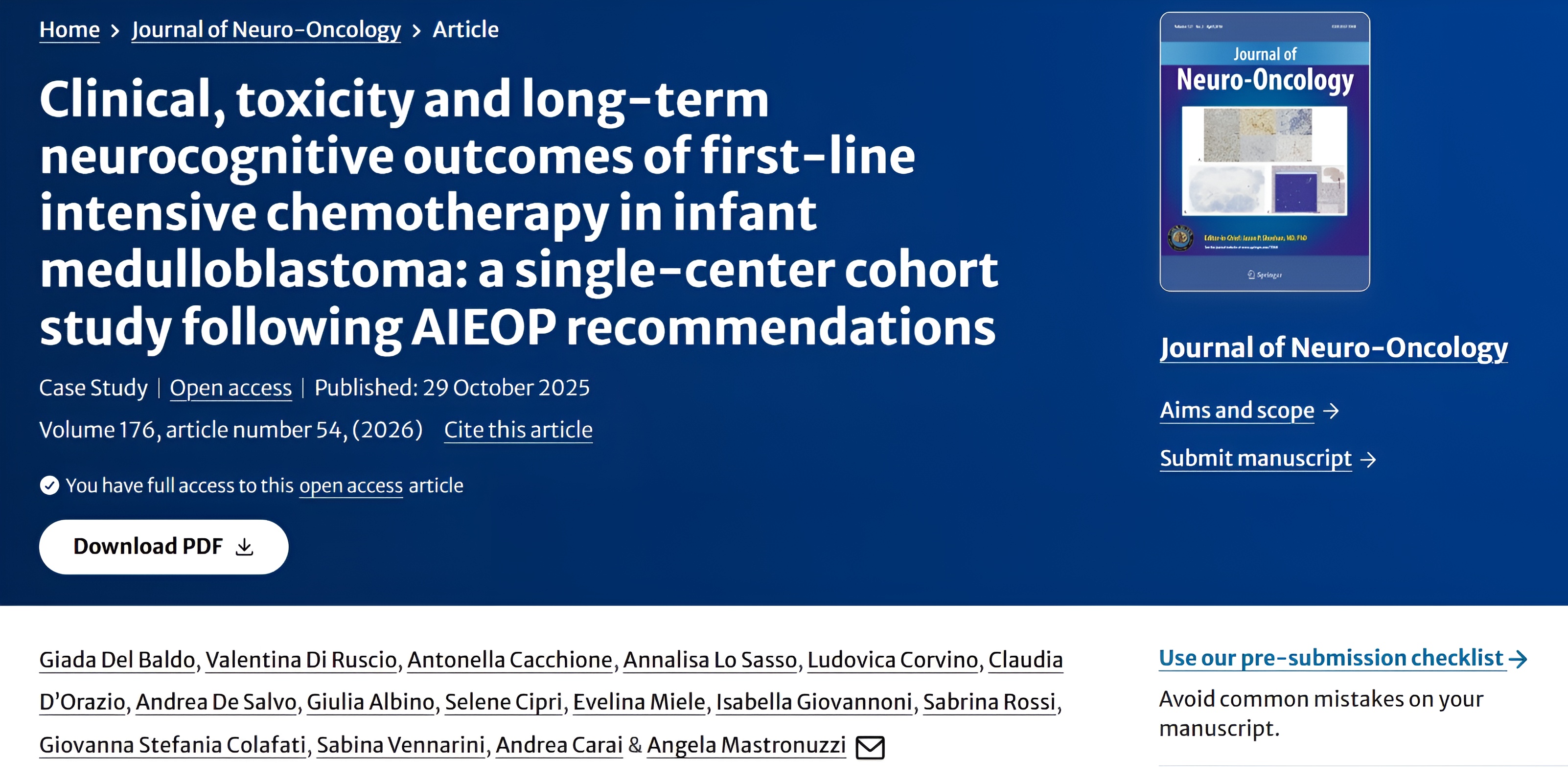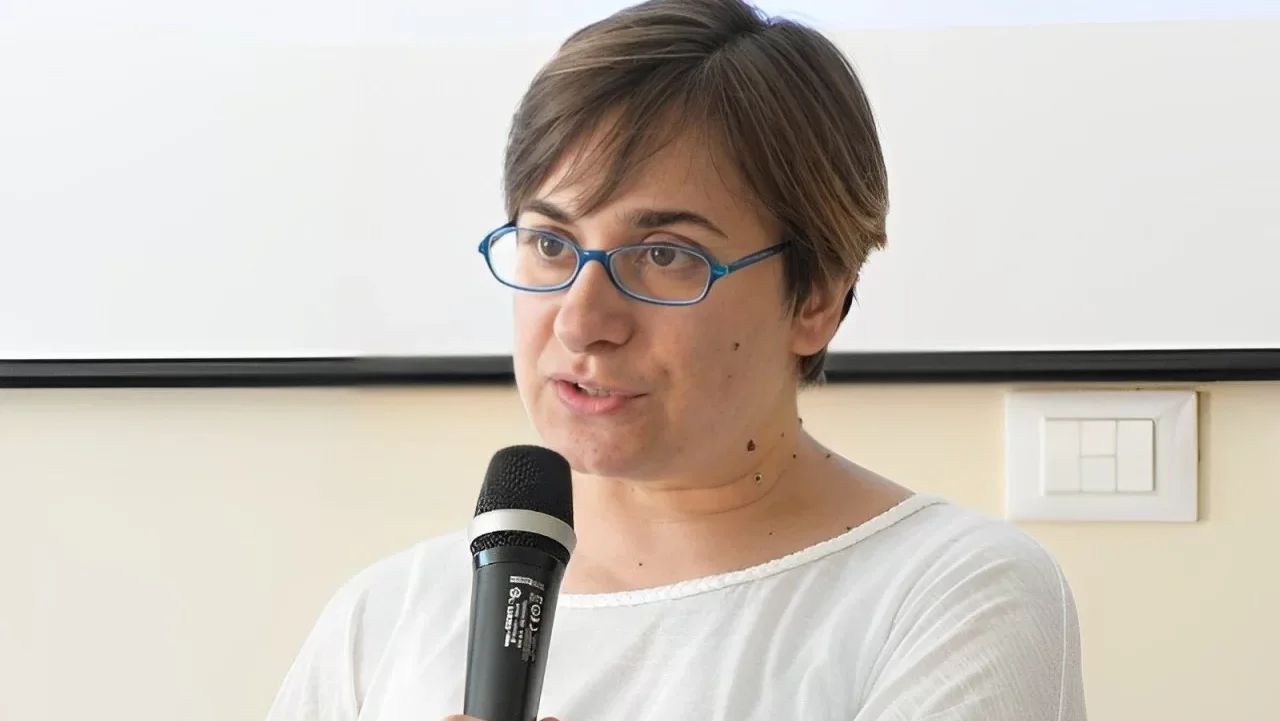Angela Mastronuzzi, Head of Neuro-Oncology Unit at Bambino Gesù Children’s Hospital and President of AIEOP, shared a post on LinkedIn about an article she co-authored with colleagues published in Springer Nature:
“Clinical, toxicity and long-term neurocognitive outcomes of first-line intensive chemotherapy in infant medulloblastoma: a single-center cohort study following AIEOP recommendations – out with Journal of Neuro-Oncology by Springer Nature.
Young children with Medulloblastoma (MB) pose a major clinical challenge due to the vulnerability of the developing brain to neurotoxic treatments. Craniospinal irradiation (CSI) remains a cornerstone of therapy, but its long-term neurocognitive effects have prompted strategies aimed at improving survival while delaying or avoiding CSI.
We retrospectively analyzed a cohort of patients under 5 years of age with MB treated at Ospedale Pediatrico Bambino Gesù between 2007 and 2023 with intensive chemotherapy regimens according to AIEOP: Italian Association of Pediatric Hematology and Oncology recommendations.
Our study of infants MB treated with first-line intensive chemotherapy shows encouraging survival rates. Importantly, neurocognitive function was preserved over time, supporting radiation-sparing strategies, and toxicity was manageable in all cases.
Special thanks to the association ‘Il Laboratorio di Chiara’ for the support.”
Title: Clinical, toxicity and long-term neurocognitive outcomes of first-line intensive chemotherapy in infant medulloblastoma: a single-center cohort study following AIEOP recommendations
Authors: Giada Del Baldo, Valentina Di Ruscio, Antonella Cacchione, Annalisa Lo Sasso, Ludovica Corvino, Claudia D’Orazio, Andrea De Salvo, Giulia Albino, Selene Cipri, Evelina Miele, Isabella Giovannoni, Sabrina Rossi, Giovanna Stefania Colafati, Sabina Vennarini, Andrea Carai, Angela Mastronuzzi.
You can read the full article in Springer Nature.

More posts featuring Angela Mastronuzzi.


